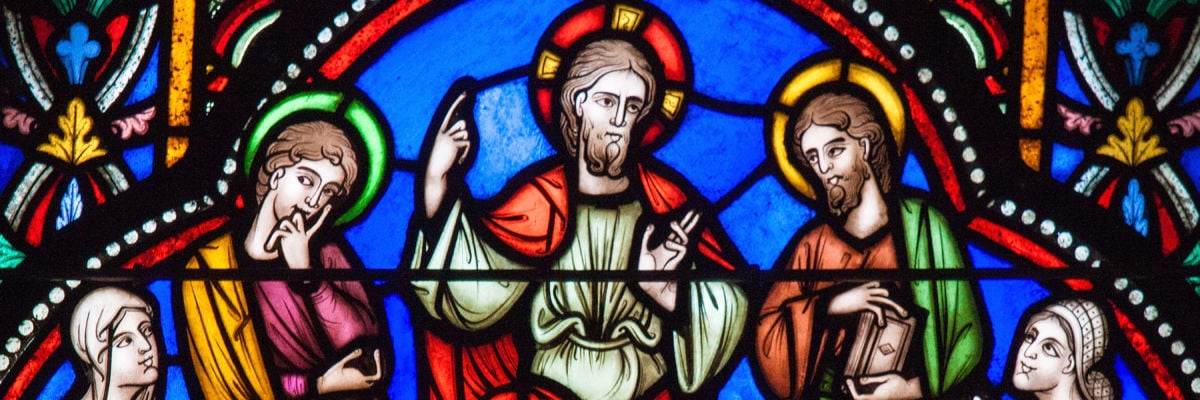
Jimmy Akin explains some of the meaning behind Mark 4:11-12 and why Jesus would have wanted to conceal the truths of parables to some people, and further explains how this relates to predestination.
Transcript:
Host: Go to Justin in Hamilton, Ohio listening on the Catholic Answers app. Justin, you are on with Jimmy Akin, what’s your question?
Caller: Hi Jimmy, my question is, well I was reading reading my Bible and I was coming across a verse in the Gospel of Mark chapter 4 where he says, “He answered them, ‘The mystery of the kingdom of God has been granted to you. But to those outside everything comes in parables so that, “they may look and see but not perceive, and hear and listen but not understand; in order that they may not be converted and be forgiven.”‘” What exactly is he trying to say? Like when I’m reading and I have a hard time understanding, is he saying that he’s saying these things in parables so people don’t understand?
Jimmy: This is one of the most difficult verses in the New Testament and I won’t really be able to do it full justice here. You might want to check out my commentary on Mark which is just called “Mark: A Commentary,” it’s by Jimmy Akin, it’s available on Verbum Bible Software. But I can give you a brief explanation here.
Now one of the things that God often does in Scripture is he often uses things like parables. Prophecy is also frequently given in a kind of symbolic, almost parable-like way rather than just an explicit straightforward statement, and there seem to be a couple of reasons for that, at least a couple. One of them is that sometimes truths are complex, and they’re rich, and in order to fully mine them it’s helpful to use an analogy rather than simply having a short statement. If you made a short statement, it would tend to flatten them out, whereas if you give them in a symbolic form, and you’re forced to think about it and wrestle with it, you may notice additional dimensions that you wouldn’t if just a short statement were given. And so the richness of these things is part of why God gives us parables and prophecies.
Also there’s a certain intrigue factor to them. We’re more likely to wrestle with them and absorb their message if they’re given to us in this somewhat enigmatic way, because our minds are attracted to mysteries and enigmas, and so if God gives us a mysterious, enigmatic statement we’re gonna be inclined to think about that more deeply than if he just told us something flat-out. We’re likely to learn our lesson better.
Having said that, there are specialized situations where knowledge is meant to be broadcast in a way that conceals it, and that seems to be what Jesus is referring to here. Jesus did not come to make his message apparent to everybody so that everybody would repent and believe. Now he came to make salvation possible for everybody, but the means by which he chose to do that in concert with the Father was by his redeeming death. And so he came to die, he came to function as a prophet who, like many of the prophets before him, would encounter opposition and disbelief on the part of many people, and who would eventually put him to death just like many of the previous prophets were martyred–only unlike them, through his death the redemption of the world would be accomplished.
And so what Jesus is talking about here is when he talks about “lest they see and understand” and so forth, basically that’s another way of saying “Part of the reason I’m using parables is so that those who would not think about them and dwell on them, those people who aren’t willing to engage the parables in a constructive way and learn from them and absorb their spiritual lessons and convert, so that those people will follow their appointed course and they will end up choosing to martyr me so that I end up fulfilling my mission as well.”
And so it’s a kind of complex situation, much like those that we actually find in parables. But it’s not that he doesn’t will everybody to be saved–he does–but he knows certain people are not going to cooperate with his offer of salvation, they’re not going to take him up on it, and as part of that he’s willing to communicate in this somewhat mysterious way, so that those who are open to God’s message will study the parables and interpret them and internalize them and be saved, whereas those who aren’t willing to engage God in that way will not do so and they’ll end up fulfilling his mission.
Host: Does that help you, Justin?
Caller: Yeah, yeah that’s a–yeah, that’s a large pill to swallow at once.
Jimmy: Yes it is.
Caller: Okay, I do have a quick question. So with your explanation, I’m thinking and trying to rationalize what you’re saying, could that be in a way like some people believe in predestination?
Jimmy: In terms–well, there are themes of predestination that are related here. It doesn’t intersect in a direct way, because, I mean Jesus is not talking about predestination per se in this passage, but God–you also have to clarify how are you using the word predestination, because in some circles the word predestination is used to refer to a decision God makes on no basis…that God’s just going to pick certain people to do certain things. And that’s not the the vision of this that I just articulated, which involves those who are willing or unwilling.
The choice that Jesus makes to leave certain people in their ignorance is based on their unwillingness to engage God in an open constructive way, because if someone is willing to engage God in an open constructive way then they’ll think about the parables, and they’ll eventually solve them, internalize their meaning and be saved. So it’s not that God’s picking people randomly to go to Heaven or Hell; the dividing line is between those who are willing to be open to God’s grace and those who are not.
Host: Thanks Justin, I hope that that was helpful to you.



